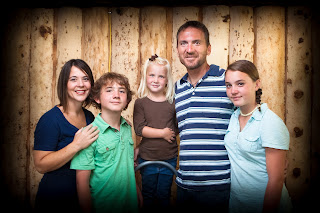On Death and Dying
My mother-in-law is dying. She is a wonderful woman of prayer and nurture. She has taken each of her children (including in-laws) and grandchildren under her wing and encouraged them to follow God's will for their lives. She has lived well. Now she is dying well--under the excellent care of hospice and with the love of her family.
Seeing a loved one die makes the veil between this world and the next become very thin. It makes you face your final enemy. You realize "noone makes it out of here alive."
It has been interesting to read how people deal with death. Elizabeth Kubler-Ross is widely recognized as one of the foremost authorities in the field of death, dying and transition for over 20 years. She reflects our culture at large's approach to death and dying. Here are some excerpts. (You can read the entire interview here.)
What happens if in the end you are not the reference point around which you are to live your life? What if there is something greater than yourself that you can throw your self into? What if there is something actually worth dying for?
The Bible clearly points to something beyond ourselves that both judges us and justifies us. Jesus' life and death both brings the justice and mercy of God in focus. We do in deed live examined lives and this gives us significance. God is watching over us. This should bring both severe sobriety and great comfort.
My mother-in-law may not have stated her approach to death in these terms, but she is certainly living (and dying) them out. I find the way she lived and is dying much more compelling and comforting than anything else that's out there.
Seeing a loved one die makes the veil between this world and the next become very thin. It makes you face your final enemy. You realize "noone makes it out of here alive."
It has been interesting to read how people deal with death. Elizabeth Kubler-Ross is widely recognized as one of the foremost authorities in the field of death, dying and transition for over 20 years. She reflects our culture at large's approach to death and dying. Here are some excerpts. (You can read the entire interview here
When I started this work, I wouldn't know what [dealing with death as an atheist or agnostic] was. I was raised Protestant. In my heart I was Catholic, and I was made into a Jew. For 22 years I was a little bit of everything. Then I worked with dying patients, and I began to realize that we're all the same. We're all the same human beings. We all are born the same way.We all die the same way, basically. The experience of death and after death is all the same.This seems to me a scary and short-sighted way to approach death. For one it's a rather demanding way to live--having to measure up to your own dreams. At the end are we really supposed to sing along with Frank Sinatra "I did it my way"? On top of that, am I the sole determiner of how great my life can be. Isn't there something beyond me to which I can aspire?
It only depends how you have lived. If you have lived fully, then you have no regrets, because you have done the best you can do. If you made lots of goofs-- much better to have made lots of goofs than not to have lived at all. The saddest people I see die are people who had parents who said "Oh, I would be so proud if I can say 'my son the doctor.'" They think they can buy love by doing what mom tells them to do and what dad tells them to do. They never listen to their own dreams. And they look back and say, "I made a good living but I never lived." That, to me, is the saddest way to live.
That's why I tell people, and I really mean it literally, if you're not doing something that really turns you on, do something that does turn you on, and you will be provided for to survive. Those people die with a sense of achievement, of priding themselves that they had the guts to do it.
What happens if in the end you are not the reference point around which you are to live your life? What if there is something greater than yourself that you can throw your self into? What if there is something actually worth dying for?
The Bible clearly points to something beyond ourselves that both judges us and justifies us. Jesus' life and death both brings the justice and mercy of God in focus. We do in deed live examined lives and this gives us significance. God is watching over us. This should bring both severe sobriety and great comfort.
My mother-in-law may not have stated her approach to death in these terms, but she is certainly living (and dying) them out. I find the way she lived and is dying much more compelling and comforting than anything else that's out there.

Comments
Post a Comment